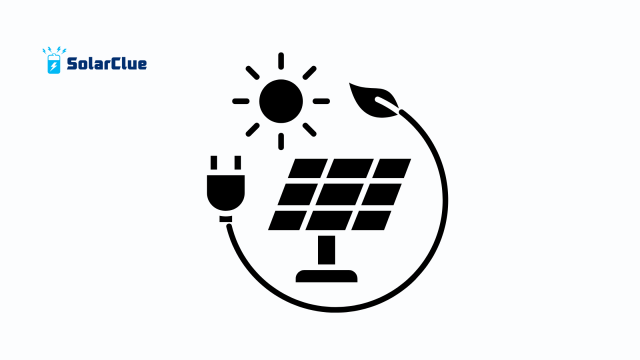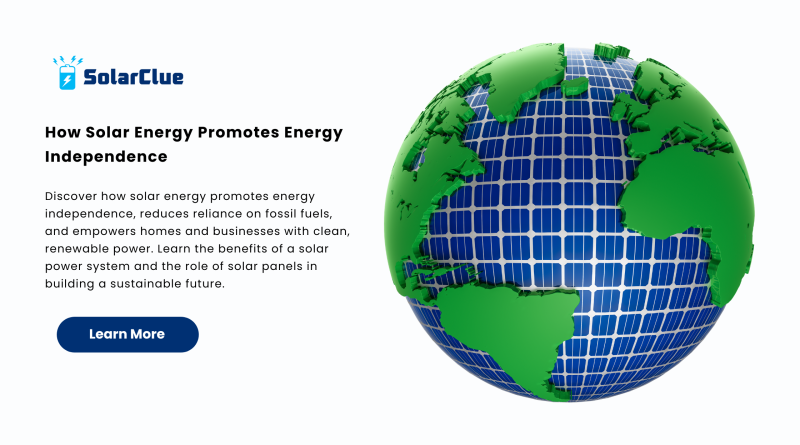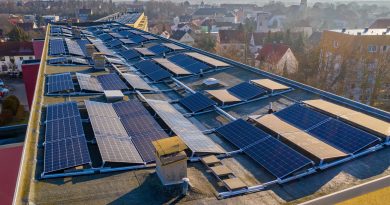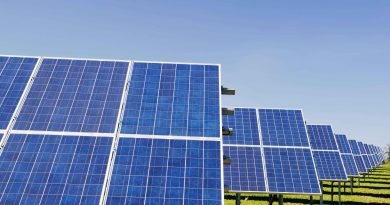How Solar Energy Promotes Energy Independence
The world is witnessing a major shift in how energy is produced, consumed, and managed. As energy costs rise and fossil fuel reserves decline, individuals and nations are searching for reliable alternatives. This is where solar energy comes into the spotlight. A solar power system not only helps in saving money but also plays a crucial role in achieving energy independence. Whether for homeowners, businesses, or entire countries, the adoption of solar panels is transforming the way energy is generated and consumed. In this blog, we’ll explore how solar power drives independence, reduces reliance on imports, and creates a path toward a cleaner, greener, and more self-reliant future.
Table of Contents
- 1 What Does Energy Independence Mean?
- 2 Why Solar Energy is the Key to Energy Independence
- 3 Benefits of Solar Energy in Promoting Independence
- 4 How Solar Power Systems Work to Achieve Independence
- 5 Environmental Benefits That Strengthen Independence
- 6 Long-Term Financial Independence through Solar Energy
- 7 Challenges and How to Overcome Them
- 8 Future of Energy Independence with Solar Power
- 9 FAQs on Solar Energy and Energy Independence
- 10 Conclusion
What Does Energy Independence Mean?
Energy independence means reducing or eliminating dependence on foreign or non-renewable sources of power. For individuals, it means generating their own electricity at home without being completely reliant on utility companies. For countries, it translates into minimizing energy imports, reducing vulnerability to price fluctuations, and having control over their own energy security. Achieving this goal requires sustainable solutions, and solar energy is one of the most powerful tools in making it possible.
Why Solar Energy is the Key to Energy Independence
Unlike fossil fuels, the sun is a limitless and free energy source. With the right solar power system, households and businesses can generate electricity directly from sunlight using solar panels. This means less reliance on external energy suppliers and more control over energy production. Furthermore, solar energy is clean, renewable, and widely available, making it the backbone of true energy independence.
Benefits of Solar Energy in Promoting Independence
1. Reducing Dependence on Fossil Fuels
Fossil fuels like coal, oil, and natural gas have long powered economies, but they are finite resources controlled by specific regions and countries. This creates vulnerability in terms of pricing and availability. By switching to solar power, nations can diversify their energy mix and reduce dependency on imported fuels. For individuals, a solar power system ensures that their daily electricity needs are not entirely tied to the grid.
2. Energy Security for Homes and Businesses
One of the biggest advantages of installing solar panels is energy security. Power outages, blackouts, or grid failures can disrupt daily life and business operations. However, with solar energy combined with battery storage, users can enjoy uninterrupted power supply. This independence gives households and businesses peace of mind, knowing that they control their own energy source.
3. Stabilizing Energy Costs
Global energy prices are volatile and influenced by geopolitical events, demand fluctuations, and supply shortages. With solar energy, once the initial investment is made, electricity production becomes predictable and stable. A solar power system can lock in long-term savings and shield users from unpredictable price hikes. This financial stability is another form of independence that directly benefits families and enterprises.
4. Empowering Rural and Remote Areas
In many parts of the world, especially rural and remote regions, access to grid electricity is limited or nonexistent. Here, solar panels bring light and power where conventional infrastructure cannot reach. By generating electricity locally, these communities become self-reliant and less dependent on external support. This highlights how solar energy contributes to independence not just at a national level, but also at the community level.
5. Supporting National Energy Independence Goals
For countries, energy imports represent a major portion of expenditure. By investing in large-scale solar power systems, governments can significantly reduce imports, strengthen energy security, and create domestic jobs. Moreover, solar projects can be scaled quickly, making them an attractive solution for long-term independence.
How Solar Power Systems Work to Achieve Independence
A typical solar power system consists of solar panels that capture sunlight and convert it into electricity using the photovoltaic effect. The energy generated is then directed through an inverter, which converts DC power into usable AC power. This electricity can be consumed immediately, stored in batteries, or sent back to the grid through net metering. The beauty of this system is that it empowers users to control when and how they use electricity, contributing directly to independence from grid reliance.

Environmental Benefits That Strengthen Independence
Apart from reducing reliance on imports and fossil fuels, solar energy also minimizes environmental risks. By cutting down greenhouse gas emissions, air pollution, and resource depletion, solar power ensures long-term sustainability. A cleaner environment means fewer economic losses from climate-related issues, allowing nations and households to thrive without being burdened by the hidden costs of conventional energy.
Long-Term Financial Independence through Solar Energy
Investing in solar panels is not just about saving money on monthly bills; it’s about long-term financial freedom. Over the lifespan of a solar power system, the return on investment is substantial. With government subsidies, tax credits, and reduced electricity costs, users achieve independence from financial uncertainties associated with energy consumption.
Challenges and How to Overcome Them
While solar energy is a clear path to independence, there are challenges. High upfront costs, space requirements, and dependency on weather are common concerns. However, advancements in technology, declining panel costs, and innovations like floating solar systems and high-efficiency modules are addressing these issues. With proper planning and government support, the road to independence is becoming smoother every day.
Future of Energy Independence with Solar Power
The future of energy independence is inseparable from solar power. As storage technology improves, grid integration expands, and solar efficiency rises, individuals and nations will find it easier to produce their own power sustainably. In the coming decades, solar panels will likely become as common as household appliances, ensuring that energy independence is within everyone’s reach.
FAQs on Solar Energy and Energy Independence
Q1. How does solar energy promote energy independence?
Solar energy allows households, businesses, and nations to generate their own power without relying on external sources, reducing dependence on fossil fuels and imports.
Q2. Can solar panels power a house entirely?
Yes, with the right solar power system and battery storage, a home can operate independently of the grid and cover all its energy needs.
Q3. Is solar energy reliable for energy independence?
Absolutely. Solar energy is reliable when combined with energy storage solutions, ensuring power availability even during nights or cloudy days.
Q4. Does solar energy save money in the long run?
Yes. While initial installation costs may be high, long-term savings, government incentives, and reduced electricity bills make solar panels a smart investment for financial independence.
Q5. How does solar power benefit rural communities?
Solar power brings electricity to off-grid and remote areas, reducing dependence on centralized utilities and empowering local communities with self-sufficient energy solutions.
Conclusion
Solar energy is more than just a renewable power source; it is the foundation of true energy independence. By reducing reliance on fossil fuels, stabilizing costs, empowering rural communities, and supporting national energy goals, solar power systems are reshaping the future. With the help of solar panels, every household and business can contribute to a cleaner, more independent energy landscape. The path forward is clear—embrace solar energy today for a future of independence and sustainability. To explore the best solar solutions and take the first step towards energy independence, visit solarclue.com and blog.solarclue.com today in an exciting way to power your tomorrow.




